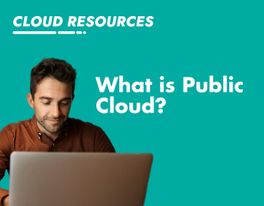Great questions = Great FinOps
My friends and colleagues know how I like to take complex things and make them simple. A cheeky PowerPoint slide, a clear diagram or a compelling graph are all in favourites in my kit bag.
What many of them don’t know, is that it comes from years as a Business Analyst where my former MD would call out “so what!?” to almost every piece of data presented. As uncomfortable as I was at the time, he had a great point. We often don’t need more data in this world… we need better questions; better questions lead to better information. We called these questions "golden questions," which were simple, jargon-free, and measurable. If we could answer them, it could make a significant difference.
We are encouraged in all walks of life to 'understand before being understood', so why not apply that to business?
Before measuring performance, it's important to take time to think of these golden questions. As the catchy mantra goes, "Obsess about the 'why' before the KPI”. For FinOps, why not challenge yourself on how effectively you can answer the below six questions.
- How much does each business function spend?
- What business benefit did that spend provide?
- Is your spend within budget?
- What is it likely to be in the future?
- How much could we save?
- How do we stop the waste from happening in future?
Framing your KPIs around some golden questions is a great way to add “a so what!?” to their meaning. Yes, they are simple (the best questions often are), but can you answer them all on a month-to-month basis? I've seen many organisations struggle with this and instead focus on analysing cost optimisation recommendations and dashboards that alone don't raise cloud awareness throughout the wider business. If you truly want to break out of denial and 'leave the Matrix' (I am a big fan of that movie!), then start with some simple questions about your current reality. I bet you’ll notice some improvements!
Some of you might be thinking, 'our business doesn’t work like that', but creating a climate for the golden questions is important, regardless of how little people don’t like questioning the status quo! Golden questions may not always be asked for all sorts of reasons.
Another example for you: Children don’t have this issue, and, as a father of three under 9s, it’s always brilliant (and often hilarious) to see their fresh perspective on life and the questions they come up with. While you may not have children in your organisation, you do have new starters and new ideas from your existing employees. If we are going to find the best questions and answers, we must nurture thinking and cognitive diversity, so that the great questions can take root and be answered.
You might be wondering what all this means for the Cloud. My advice is to take a closer look at your Cloud Centre of Excellence (CCoE) teams. If you don’t have one, then it’s time to form one! Public Cloud can be a massive enabler for organisations if people are brought along on the journey. To quote my favourite African proverb, “go fast, go alone, go far, go together”. If you already have a CCoE, it's worth considering ways to make it more open, diverse, and inclusive. Remember, diversity is key to unlocking innovative ideas and discovering the most valuable questions worth answering.
In summary, if you want to transform your FinOps practice, start with finding the golden questions that demand answers about your cloud usage. Questions that are simple, jargon-free, measurable over time with KPIs, and powerful to your business if answered, and ensure you have a diverse team motivated to help you answer them. Compared to staring at a load of cost reports and recommendations each month from your FinOps tech, this approach doesn’t stand a chance in comparison. While it may tidy up your environment and reduce expenses, you can’t run off a bad diet. It takes some great questions to drive the insights you need to improve your operations and capitalize on your cloud investment.








